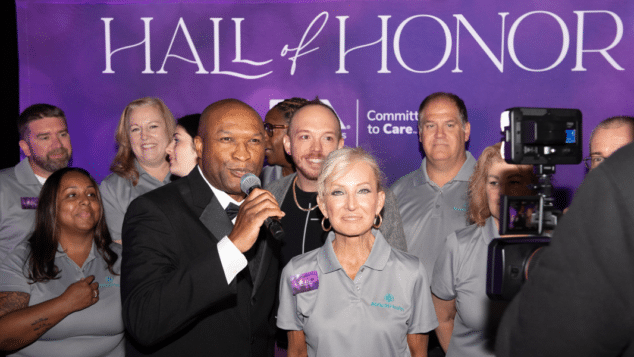How to Innovate your Association’s Event Strategy Approach

Rethinking event and conference strategies is becoming a priority for many associations. McKinley’s latest Association Viewpoint report, An Age of Acceleration, reveals that the top area in which associations see the need to innovate approaches are conferences and meetings (63%).
Non-dues revenue challenges, shifting customer behaviors and competition from for-profits have emerged as issues affecting event strategies. After identifying the challenges that relate to your association’s event strategy you can assess the extent to which they are affecting your organization and take innovative steps to manage those challenges.
The revenue challenge
According to Association Viewpoint, non-dues revenue accounts for 65% of total revenue for professional association revenues and 47% for trade associations. Meetings, conferences and trade shows remain the top source of non-dues revenue — constituting 26% of overall revenue for professional associations and 28% for trades. Along with the continuous pressure to step up non-dues revenue, associations have realized the importance of diversification. Depending heavily on just one big annual meeting as the major revenue source severely limits reach and revenue potential.
Diversifying the events portfolio is becoming a priority. Associations are starting to mine their flagship event for additional revenue opportunities. For example, David Bartholomew, senior vice president of learning at the American College of Healthcare Executives shared, “We want to grow attendance by 25% over the next 2-3 years. But we also want to get more out of each meeting—whether that’s by creating value for attendees through added continuing education credits, offering special-access passes to exclusive events, re-inviting speakers to present at a live virtual event or identifying publication possibilities from sessions.”
Opportunity for innovation: The key to success is to have an integrated content strategy that leverages synergies across all association content — publications, events, learning platforms — and also enables one event to fuel the next in terms of speakers and topics. As Abe Eshkenazi, CEO of the Association of Supply Chain Management emphasizes, “A one-and-done approach with a big annual meeting is a drain on resources that yields limited ROI. We need to diversify the event portfolio and recycle and repurpose our expertise to realize the full potential for reach and revenue.”
The customer challenge
Many associations are seeing a keen desire among their members to get back to in-person meetings. On the flip side, virtual offerings — which reached a new level of sophistication during the pandemic — attracted new customers and made it cheaper and easier to participate from home.
Customers are deeply embedded in the on-demand economy. They are used to an extensive selection of content, variety in offerings, convenience of transactions, multi-channel access, subscription models and near-instant gratification.
Opportunity for innovation: Associations need to strategize on how to embrace key aspects of this on-demand customer culture in event design, planning and pricing. Surveying customers to reveal their learning preferences, barriers to event attendance and the type of events they are interested in can lead to a data-driven event and marketing strategy that aligns with customer needs.
“Data mining and business intelligence are critical for better decision making. Our marketing team members are becoming mini-analysts. We monitor response and registration metrics on a continual basis to tweak and improve our marketing approaches,” said Anthony Priore, chief marketing and membership officer at the American Academy of Orthopaedic Surgeons.
The competition challenge
Meetings and networking events are no longer the domain of associations. Media companies, foundations, universities, and a whole array of for-profit entities with massive resources are increasingly giving associations a run for their money. While associations often have the benefits of credibility, a loyal following, and affordable fees, they aren’t always poised to overcome the extensive reach and aggressive marketing tactics employed by their competitors.
Opportunity for innovation: It’s critical for associations to conduct regular market scans and research to be competitive in event types, price, content and audience reach. Expanding topics, formats and locations based on consumer preference can help associations stay competitive. For example, associations are adding a range of in-person, virtual and hybrid events to their offerings and pairing them with curated on-demand libraries. Regional and local events; webinars; custom offerings for large companies; topical seminars, summits, and forums focused on specific customer tiers; targeted networking events; and novel event formats are gaining more traction.
With these rapidly escalating changes in the industry, it’s important to identify, assess and manage the challenges affecting your conferences and meetings.
Tags
Related Articles
What to Wear to the Honors Gala 2025: SHINE ON in Style
Get ready to sparkle, shimmer, and most importantly—shine! Association Forum’s Honors Gala 2025 is on…
Double Your Footprint: Enhancing Conferences with a Hybrid Event Workflow
By combining on-site engagement with a digital experience, hybrid events can attract diverse audiences, boost...
The Emergency Nurses Association Utilizes Design Thinking to Reimagine its Awards Ceremony
In a prime example of intrapreneurship, the ENA utilized design thinking to innovate within the...





